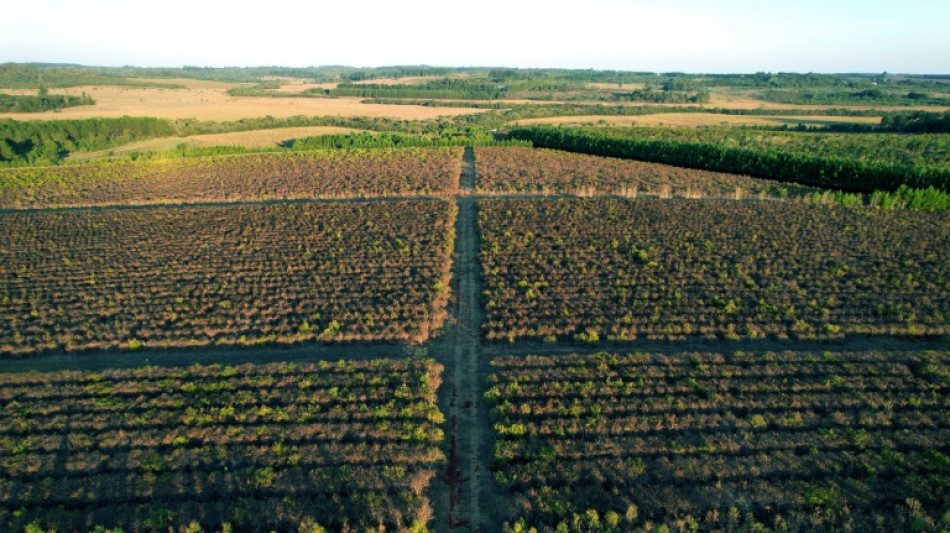
-
 Walmart outlines big AI ambitions as it reports mixed results
Walmart outlines big AI ambitions as it reports mixed results
-
Trump kicks off his 'Board of Peace,' as war clouds loom on Iran

-
 UK pubs to stay open late if home nations reach World Cup knockouts
UK pubs to stay open late if home nations reach World Cup knockouts
-
TotalEnergies in high-stakes French trial over climate change

-
 Bosnia probes fascist salutes at Croatian singer's concert
Bosnia probes fascist salutes at Croatian singer's concert
-
US and Israel issue dire warnings to Iran alongside US military buildup

-
 British public cheer Andrew's arrest with a smile and relief
British public cheer Andrew's arrest with a smile and relief
-
Argentine workers go on strike to protest Milei's labor reforms

-
 Nakai targets Olympic skating upset as 'skimo' makes debut
Nakai targets Olympic skating upset as 'skimo' makes debut
-
What we know about ex-prince Andrew's friendship with Epstein

-
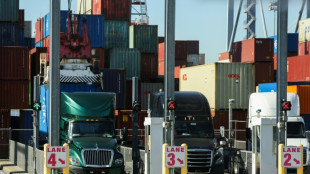 US trade deficit in goods widens to new record in 2025
US trade deficit in goods widens to new record in 2025
-
Oil extends gains on US-Iran tensions, stocks retreat

-
 Williams 'on the back foot' after missing Barcelona: Albon
Williams 'on the back foot' after missing Barcelona: Albon
-
Real Madrid submit evidence to UEFA in Vinicius racism probe

-
 Olympics rev up Milan's renewal but locals fear price to pay
Olympics rev up Milan's renewal but locals fear price to pay
-
Cardona Coll, Fatton win Olympic-debuting ski mountaineering sprint golds

-
 MSF will keep operating in Gaza 'as long as we can': mission head
MSF will keep operating in Gaza 'as long as we can': mission head
-
Russian Filippov wins first medal at Milan-Cortina Games for individual neutral athletes

-
 Italian Milan takes sprint honours at UAE Tour
Italian Milan takes sprint honours at UAE Tour
-
Dozens killed in jihadist attacks in northwest Nigeria

-
 Zimbabwe unbeaten in T20 World Cup after six-wicket Sri Lanka win
Zimbabwe unbeaten in T20 World Cup after six-wicket Sri Lanka win
-
Postecoglou admits taking Nottingham Forest post a 'bad decision'

-
 Switzerland's Fatton wins women's ski mountaineering sprint on Olympic debut
Switzerland's Fatton wins women's ski mountaineering sprint on Olympic debut
-
Kinghorn, Van der Merwe return for Scotland against Six Nations strugglers Wales

-
 Repsol says could boost Venezuela oil output over 50% in 12 months
Repsol says could boost Venezuela oil output over 50% in 12 months
-
UN says Israeli actions raise 'ethnic cleansing' fears in West Bank, Gaza

-
 Arteta tells faltering leaders Arsenal to harness Wolves 'pain' against Spurs
Arteta tells faltering leaders Arsenal to harness Wolves 'pain' against Spurs
-
Crowley gets nod for Irish as Prendergast drops out

-
 Unbeaten Swiss to meet Great Britain in Olympic men's curling semis
Unbeaten Swiss to meet Great Britain in Olympic men's curling semis
-
UK police arrest ex-prince Andrew on suspicion of misconduct

-
 Oil extends gains on US-Iran tensions, Europe stocks slide
Oil extends gains on US-Iran tensions, Europe stocks slide
-
Former prince Andrew, a historic downfall

-
 Sri Lanka post 178-7 against Zimbabwe ahead of T20 Super Eights
Sri Lanka post 178-7 against Zimbabwe ahead of T20 Super Eights
-
OpenAI's Altman tells leaders regulation 'urgently' needed

-
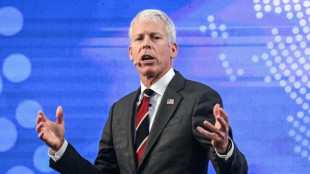 US renews threat to leave IEA
US renews threat to leave IEA
-
Liverpool boss Slot says Isak in 'final stages of rehab'

-
 Airbus ready to build two new European fighter jets if 'customers' ask
Airbus ready to build two new European fighter jets if 'customers' ask
-
UN Sudan probe finds 'hallmarks of genocide' in El-Fasher
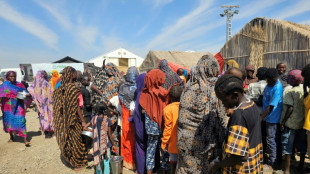
-
 Costelow starts, Hamer-Webb makes Wales debut in Six Nations clash with Scotland
Costelow starts, Hamer-Webb makes Wales debut in Six Nations clash with Scotland
-
Facing US warnings, Iran defends right to nuclear enrichment

-
 Ex-South Korea leader Yoon gets life in prison for insurrection
Ex-South Korea leader Yoon gets life in prison for insurrection
-
OpenAI's Altman says at India summit regulation 'urgently' needed

-
 British couple held in Iran sentenced to 10 years
British couple held in Iran sentenced to 10 years
-
West Indies ease past Italy to tune up for T20 Super Eights

-
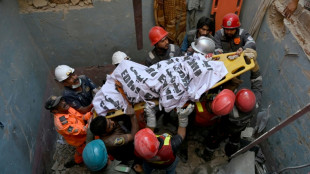 At least 16 killed after building collapses in Pakistan following blast
At least 16 killed after building collapses in Pakistan following blast
-
Summit photo op fails to unite AI startup rivals

-
 OpenAI's Altman says world 'urgently' needs AI regulation
OpenAI's Altman says world 'urgently' needs AI regulation
-
Horror comics boom in our age of anxiety

-
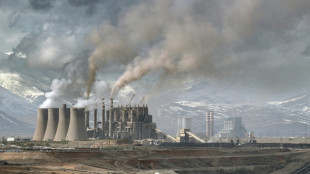 Turkey fires up coal pollution even as it hosts COP31
Turkey fires up coal pollution even as it hosts COP31
-
London fashion week opens with tribute to one of its greats


Restoring damaged land key to climate, biodiversity goals
Unsustainable farming is on track to increase the amount of severely degraded land by an area the size of South America by mid-century, a UN report warned Wednesday, as experts said restoration was a matter of "survival".
Global food systems are responsible for 80 percent of deforestation and 70 percent of freshwater use, said the report.
They are also the single largest driver of species extinction, which is occurring 100 to 1,000 times more rapidly today than when human activity began to radically change the climate and degrade nature.
"The risk of widespread, abrupt or irreversible environmental change will grow," the Global Land Outlook 2 report warns.
The 40 percent of Earth's non-frozen land denatured by chemical-intensive exploitation threatens roughly half of global GDP, some $4 trillion, according to the 250-page peer-reviewed assessment, which called for action "on a crisis footing".
"How we manage and use land resources is threatening the health and continued survival of many species on Earth, including the human species," Ibrahim Thiaw, Executive Secretary of the UN convention charged with reversing land degradation told AFP.
"Business as usual is not a viable pathway for our continued survival and prosperity."
The flagship report of the UN Convention to Combat Desertification (UNCCD) comes two weeks before the treaty's 197 parties meet for the first time in three years, in Abidjan.
Adapting to an increase in drought and transitioning to sustainable agriculture top an agenda more broadly focused on restoring the health of one of Earth's vital resources: land.
- Agriculture's 1% -
At least 70 percent of ice-free land on Earth has been converted to human use, and most of that has been degraded. That means that things do not grow as much or as well as they used to.
"There's not a lot of land left," UNCCD chief scientist Barron Orr told AFP. "And yet, we still see an accelerated rate of land use change taking place."
The report reveals a startling level of concentration in the production of food.
At one extreme, one percent of agribusinesses control 70 percent of the world's agricultural land. At the other extreme, 80 percent of farms comprise only 12 percent of all farmland.
"The solution, at least in the initial phase, is not going to be converting land back to small holders," said Orr.
"It's making sure we move large agriculture into a much more sustainable space."
- Climate and nature -
The UN Paris Agreement's cornerstone climate goal is capping global warming below two degrees Celsius, and the biodiversity convention is aiming later this year to carve out 30 percent of Earth's surface as protected areas.
For the desertification convention, the core goal is "land degradation neutrality" by 2030.
Behind the cumbersome name is a simple concept that can be summed up as "no net loss": to ensure that, by 2030, the amount of degraded land in a given country has not expanded compared to a 2015 baseline.
Previously, the international response has been bogged down in arguments about metrics.
That problem hampered progress on the Great Green Wall, an ambitious, multi-decade scheme to reclaim agricultural land from the desert along the Sahel stretching 7,000 kilometres (more than 4,000 miles) from the Atlantic Ocean to the Red Sea.
Countries could not agree on how to monitor and measure progress. But the new benchmark is far easier to apply, said Orr.
- Competing for land -
The report contrasts different development scenarios out to mid-century.
A "business-as-usual" approach would see an additional 250 billion tonnes of CO2 or its equivalent released into the atmosphere by 2050 -- roughly four times current annual greenhouse gas emissions from all sources.
But a strategy of land restoration and protection could see the opposite: some 300 billion tonnes safely stored in soil and vegetation compared to a 2015 baseline -- equivalent to five years of current emissions.
Competition for land is heating up and there will be increasingly hard choices in the future over whether to carve out land for commodity crops, growing more food, C02-absorbing plantations, or to preserve as biodiversity corridors.
"We have to really think about that much more strategically," said Orr.
The report recommends for the first time scaling up the land rights of indigenous peoples as a climate solution and to ensure the success of projects to restore nature.
But indigenous groups, often shunted aside or pushed off their traditional homelands in the past, remain wary.
"We welcome new allies to this battle, including economic actors who are increasingly interested in avoiding climate risk, but we must make clear that we will not be used for greenwashing," said Jose Gregorio Diaz Mirabal, representing 511 indigenous groups in the Amazon basin.
"Partnering with Indigenous peoples requires embracing transformative change."
P.Silva--AMWN


